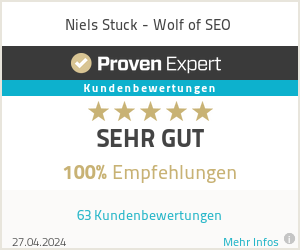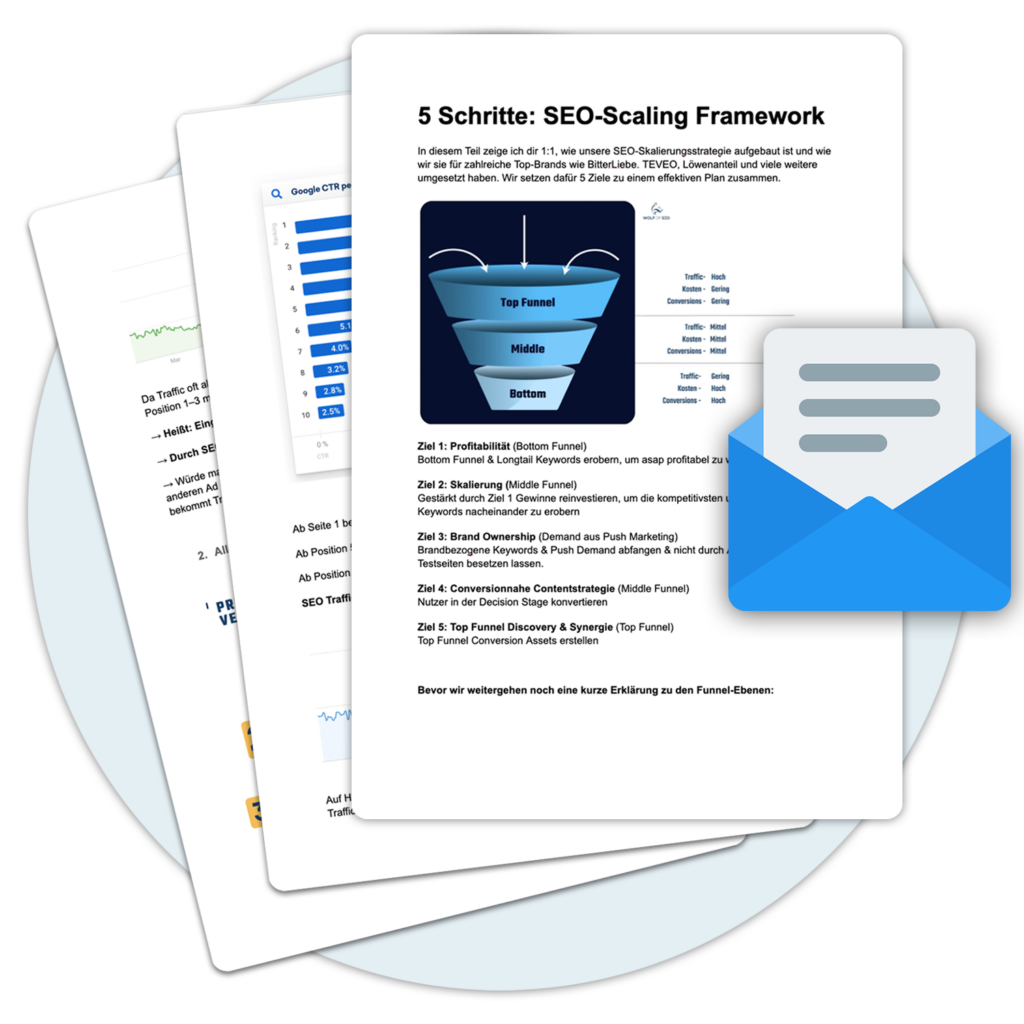The Keyword-Spreading should be focused on relevant keywords that are really relevant to the website and the content. When selecting keywords, it is advisable to carry out a thorough Keyword-research to identify those who can achieve the best results.
With the right Keyword-Spreading can improve the visibility of the website in search engine results, which in turn leads to more traffic. Traffic and potential customers. It is therefore important to integrate this SEO strategy into your own Online Marketing-strategy.
Keywords are an important part of your SEO strategy
Together with relevant content and an optimized website design, ranking for the right keywords helps your website stand out from the crowd - and rank on search engine results pages (SERPs) to move further up.
Therefore, it is not surprising that much of the SEO advice focuses on keywords: Thorough research can help you select and rank for the best keywords in your market, which in turn increases user engagement and overall revenue.
But how many keywords are enough? How many are too many? How do you know? And what happens when Google and other search engines find that your website is "stuffed" with keywords?
Why keyword density is important
Keywords determine the search. When users search for products or services, they generally use aKeyword, which reflects their overall intent, and expect search engines to provide relevant results.
Even though tools like Google now take into account factors like geographic location and site authority - which is defined in part by the number of visitors to your site and in part by "dofollow" links from reputable sites that link to your site - keywords are still a critical factor in a site's success.
The catch? You can't just "stuff" as many keywords as possible into your content and expect reliable results.
In the wild days of the first search engines, brands and SEO companies wrote low-quality content and stuffed it withKeywordandKeyword-tags full, along with links to similarly stuffed pages on the same site. Not surprisingly, visitors were frustrated and search engine operators realized they needed a better approach.
Today hasKeyword stuffingthe opposite effect: search engines penalize the page placements of websites that continue toKeyword-Stuffing.
Tools for checking the keyword density
The review of the Keyword-density is an important aspect of the Search engine optimization (SEO). Various tools can be used to ensure that the desired keywords appear in an appropriate frequency in a text. These tools help online marketers and copywriters to find the optimal Keyword-density and to determine the Content accordingly.
A selection of the top SEO tools for checking the Keyword-density:
- SEMrush: A comprehensive tool that not only supports the Keyword-density, but also monitors competitor keywords and supports SEO strategies.
- Yoast SEO: A WordPressPluginthat the Keyword-optimization is monitored in real time and helps to find the optimal Keyword-density.
For the use of Keyword-density tools, some important rules apply:
- Correct text selection: Carefully select the text you want to check to achieve accurate results.
- Identify keywords: Identify the relevant keywords that you want to check in your text.
- Use the tool: Enter the text in the selected tool and start the analysis.
- Analyze and optimize: Check the results, identify areas with too high or too low Keyword-density and optimize your text accordingly.
Enter the text in the selected tool and start the analysis. It's that simple Keyword-density with the help of the right tools and to check the Content to optimize. By using these tools, you can ensure that your texts are well targeted to the relevant keywords and therefore have a better chance of appearing in search engine results.
How to use keyword density tools
Keyword-Density tools are helpful instruments for finding the optimum Keyword-density in your Content and improve it. Here are steps on how to Keyword-density tools effectively:
- Choose the right tool: There are various tools on the market that can help you to Keyword-density. Make sure you choose a reliable and user-friendly tool.
- Enter your content: Copy your content into the input field of the tool. You can either check the entire text or a specific section.
- Start analysis: Click on the "Start analysis" button or similar to start the analysis. Keyword-density of your content.
- Check the results: The tool will provide you with information on Keyword-density. It shows you how often a particular Keyword occurs in your content and how high the Keyword-density.
- Optimize your content: Based on the results of the Keyword-density tools, you can optimize your content by adjusting the number of keywords or using synonyms to increase the density of your content. Keyword-density.
Keyword-Density tools are valuable tools to ensure that you incorporate your keywords appropriately into your content. They can help you strike the right balance between Keyword-density and readability, which is crucial to achieving good SEO performance.
Summary and conclusions
The Keyword-The search engine density plays an important role in search engine optimization (SEO), as it influences how search engines understand and evaluate the content of a website. In this article, we have analyzed various aspects of Keyword-density and discusses how it can be used correctly to improve the visibility of a website.
The definition and meaning of Keyword-density has been explained. This is the ratio between the number of keywords and the total text on a website. An appropriate Keyword-density is important to signal to search engines that the page contains relevant information and that it contains the desired content. Keyword is thematically relevant.
The optimal Keyword-density varies depending on the context, but a recommended average density has been established.Keyword-density. However, it is important to avoid excessive Keyword-density, as this can be seen as spamming and can lead to a devaluation of the website.
The placement of keywords in content and the role of the Keyword-Spreadings were discussed. It is important to insert the keywords organically and sensibly into the text so as not to impair the reading flow. Spreading the keywords across different parts of the website can also help to achieve a balanced Keyword-optimization.
Tools were developed to check the Keyword-density. There are various SEO tools with which the Keyword-density can be analyzed. These tools can help to determine the ratio of keywords in the text and identify potential for improvement.
Overall, the Keyword-density is an important factor in the SEO strategy. However, it should not be overrated and should not be seen as the sole criterion. A balanced and natural use of keywords is crucial in order to provide relevant and high-quality content for both search engines and users.
« Back to Glossary Index





 By
By 